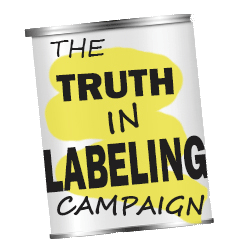In December of 2022, we revealed a remarkable finding, a 2010 press release issued by Ajinomoto telling about the company’s cozy partnership with the U.S. Department of Agriculture to study MSG.
At that time, we tracked down and sent some questions to the scientist named in the release, Dr. Kevin Laugero, who is still affiliated with the USDA/ARS (Agricultural Research Service). When we didn’t hear back from him, we took the next step, a Freedom of Information Act request with the USDA.
We recently received a response from the USDA. Here’s what we learned in a 53-page release of documents, many of them invoices from the USDA to Ajinomoto.
- Ajinomoto, possibly the world’s largest manufacturer of MSG, paid the USDA a total of $674,000 to conduct a three-year “study” on the “effects of ingesting MSG on energy balance and eating behavior.” The hypothesis proposed was that daily consumption of MSG will “reduce body weight rebound.”
- Ajinomoto, known as “the cooperator” in the official “statement of work” filled out by the USDA, was given a wire routing number to zip those funds into an account at Citibank.
- The original budget of $598,653 was increased twice to “expand subject recruitment efforts,” hire a staff recruiter, project manager and up the stipend paid to volunteers, which was originally $580 per person for a 25-week commitment.
Although Dr. Laugero finally did reply, he would only say that the Ajinomoto glutamate research project was completed and that scientists have analyzed the data, which have not been published. “I can’t really comment on the results.” he said.
But by far the most interesting part of the documents we received has to do with the “research plan,” a study to be produced by three USDA researchers – including Dr. Laugero. The outline describes a six-month scheme for psychological and metabolic evaluations, cognitive testing, multiple blood draws, saliva samples, “snack food buffets,” mental stress tests, and MRI brain scans that collected data on the subject’s “neural responses to food cues,” none of which appear to be relevant to energy balance and eating behavior. Volunteers were sent questionnaires, and for the MSG test group there would be consumption of MSG (supplied as a broth powder) prior to their breakfast, lunch and dinner – called the “intervention phase.”
But evidently something went wrong, as the study was never published. Since we know the Glutes never publish anything that might suggest that MSG is toxic, and since the USDA was not even pretending to do an independent study, apparently when the results didn’t come out as desired the report of the study vanished. If not for the twelve-year-old press release we found online that tipped us off, no one outside of the USDA would know about this “partnership” payout.
One might ask why this study was done in the first place? And why done by the USDA?
We think we may know at least part of the answer.
Two years before the USDA/Ajinomoto joint venture, a study from the University of North Carolina clearly linked MSG consumption in people to weight gain. According to epidemiologist Dr. Ka He, those who consume large amounts of MSG increase their risk of being overweight by a whopping 175 percent.
To counter that, Ajinomoto jumped in with a rodent study that was published in the journal Physiology & Behavior, concluding that rats who drank MSG spiked water were lean and healthy. But perhaps comparing their lab rats to humans didn’t seem as effective – at least publicity wise.
So, why not collect a group of human lab animals to study, and have the good name of the USDA associated with Ajinomoto and the safety of MSG? Ajinomoto found the USDA more than willing to play along.
As we said last year, this is a stunning example of how closely connected industry is with our so-called watchdog federal agencies.
Those interested in learning more about agency/industry cooperation will find interesting material at Industry’s FDA: https://www.truthinlabeling.org/assets/industrys_fda_final.pdf. Those with interest in methods used by the Glutes to come to the foregone conclusion that MSG is a harmless food additive can access How the “MSG is safe” game is played: https://www.truthinlabeling.org/safe.html



